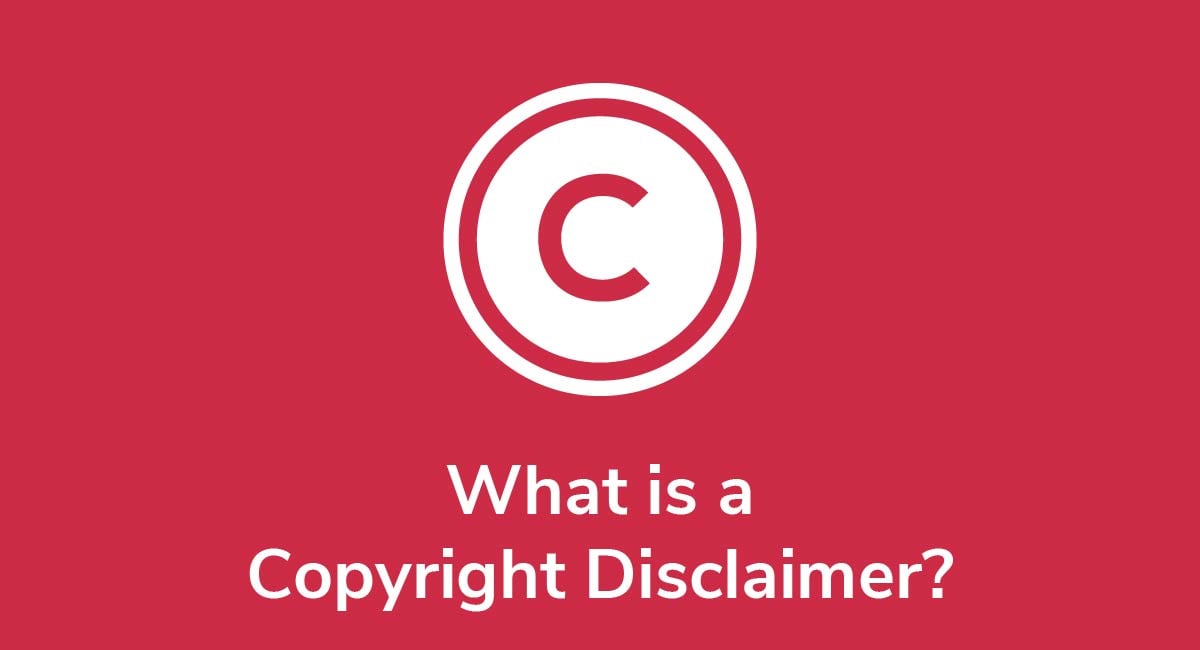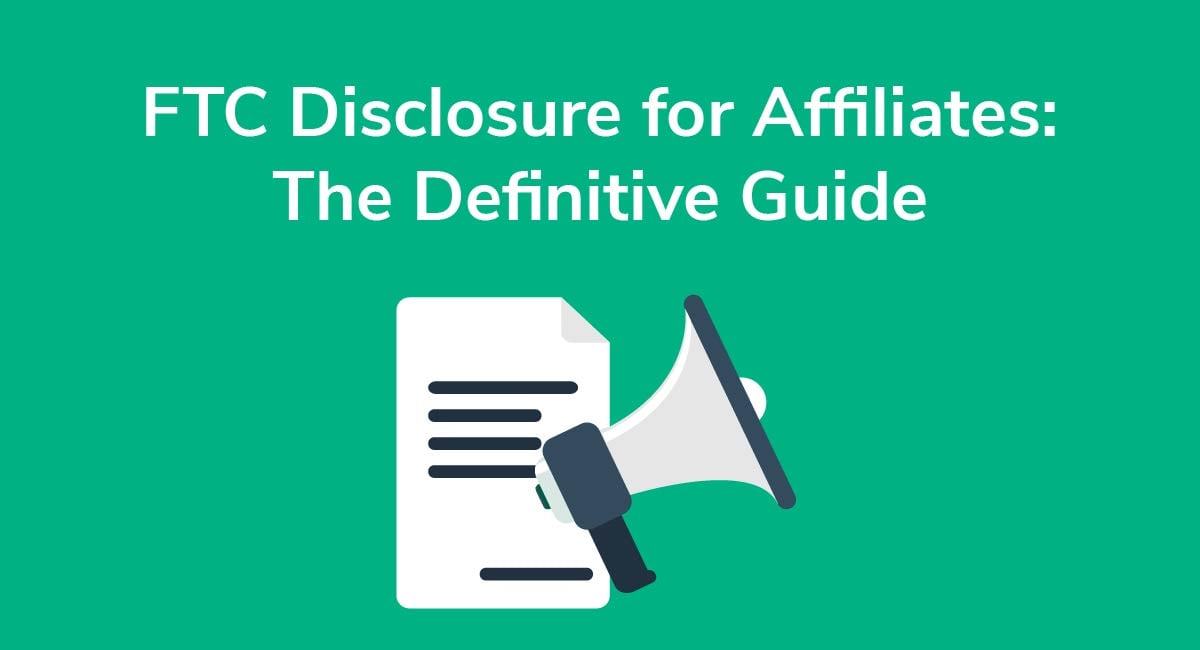Affiliate Disclaimers
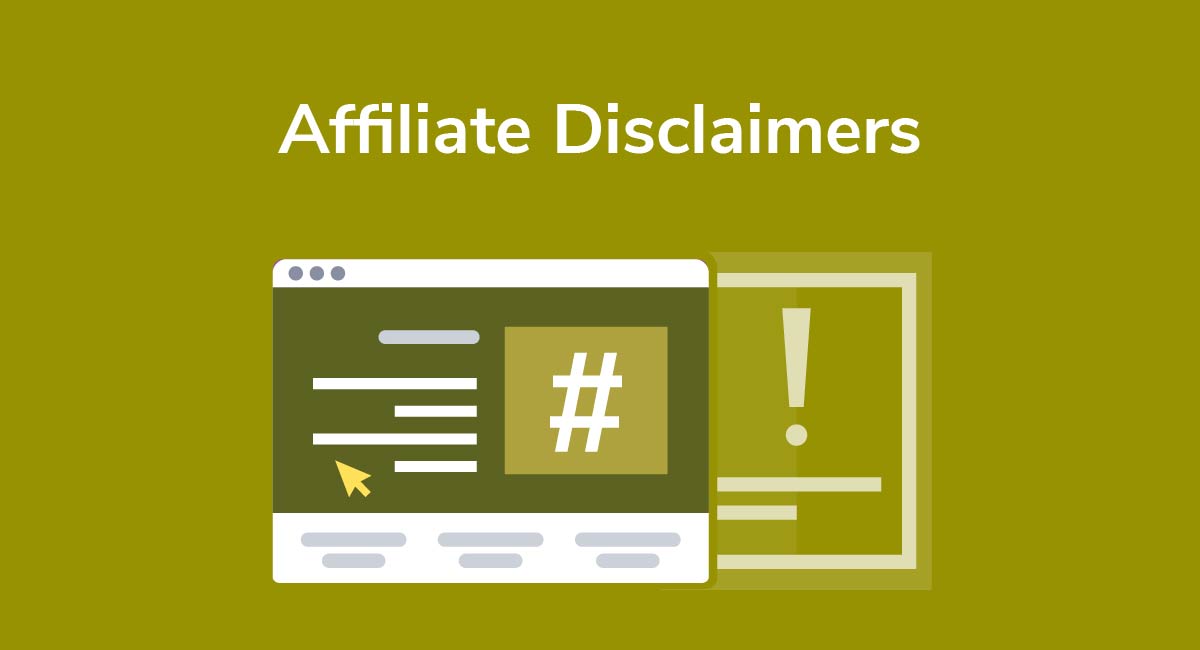
Back in 2016, it was estimated that by 2020, retailers will spend $6.8 billion on affiliate marketing alone. If you're clued into affiliate programs, then those statistics come as no surprise. After all, the vast majority of brands now use affiliate programs because it's a form of performance-based marketing. "You convert sales for us and we all win."
As affiliate marketing has grown, so has the attention given to it by bodies like the Federal Trade Commission (FTC). Now, it's recognized as a form of advertising and is subject to special rules, like the mandate requiring the use of affiliate disclaimers.
Keep reading for our full guide to affiliate disclaimers and how to use them to remain compliant with the law.
Get compliant today with PrivacyPolicies.com
Select one of our generators to create the required legal agreements for your business:
- Our Privacy Policy Generator can help you generate a customized Privacy Policy in around three minutes, for free.
- Our Terms & Conditions Generator can help you generate a customized Terms & Conditions agreement in around three minutes, for free.
- Our EULA Generator can create a customized End-User License Agreement for your mobile or desktop app.
- Our Cookies Policy Generator can create a customized Cookies Policy to help your compliance with ePrivacy Directive and GDPR.
- Our Disclaimer Generator can create a disclaimer or disclosure for your website.
- Our Return & Refund Policy Generator can help your ecommerce store by creating a returns or refunds policy.
Integrate a free Cookies Notice and Cookie Consent banner to comply with the EU ePrivacy Directive and the new GDPR law regarding cookies.
- 1. What's an Affiliate Disclaimer?
- 2. How Affiliate Disclaimers Win Customer Loyalty
- 3. Affiliate Disclaimers are a Legal Requirement
- 3.1. Disclosing: Who, When, and Where
- 4. Four Essential Parts of an Affiliate Disclaimer
- 4.1. Tell Them You're Getting Paid
- 4.2. Explain Why You've Chosen the Products
- 4.3. Disclose Whether You've Been Given Free Products
- 4.4. Let Them Know You Participate in Amazon Associates
- 5. Conclusion
What's an Affiliate Disclaimer?

Affiliate disclaimers inform your visitors that you participate in an affiliate program, and thus, you may receive commissions from the links used on your sites.
In today's world, it may seem obvious that you're part of an affiliate program, and because the practice is so common, you might wonder why sharing your partnerships formally matters.
It matters because affiliate disclaimers are mandated by the Federal Trade Commission in the United States and under other laws around the world.
Getting caught without one is a good way to get slapped with a fine or even have your website shut down. But these disclaimers are more than a legal requirement. They're also good business practice.
How Affiliate Disclaimers Win Customer Loyalty

Using a disclaimer is good business practice because it drives loyalty - one of the key components to business success.
Study after study has shown it to be true. One report from consultancy giant Bain & Co found that boosting customer retention by 5% can lead to a correlated 95% increase in your profitability.
Affiliate disclaimers encourage transparency and build trust.
Whether affiliate marketing is your primary business or part of your wider operations, you know that trust is key to sales. If visitors can't rely on you, then your word isn't enough to encourage them to buy the products or visits the sites you link them to.
Part of building that trust requires transparency. Whether you think it's a good look or not, visitors need to know that you'll make money if they buy the product from your link.
Without disclosing that, some customers believe that your recommendation is in good faith only. And while it may be an amazing product, they might think twice if they find out you're marketing a product for commission without telling anyone you stand to benefit financially from sales of that product.
Think about it:
Your friend goes on and on about a product - they can't recommend it enough. After hearing about it, you're sold, so you buy it, too.
You think she's just telling you about it because she knew you'd love it.
Then, you find out that your friend made a commission off of your sale, but she left that out of what now seems like an overt sales pitch. Sure, you needed and like the product you just bought, but you can't help but wonder if she only told you about that specific buy because she wanted to earn that commission.
Not sharing that you're making a commission on sales puts your own customers in an awkward position, and it's a good way to send them out looking for more reliable information.
Affiliate disclaimers promote fair advertising practices.
Businesses should be able to market from a similar position and buyers should be able to make decisions based on information they trust.
Imagine marketing your own business and seeing your competition dominate the blogosphere. You might wonder how they've done it. You're probably also a little bit jealous. Then, you get to work to figure out how you can do the same thing - what does it take?
Wouldn't you be angry to find out that your rival is all over the internet not based solely on merit but because they're paying hefty referral and commission fees to prominent influencers without disclosing it?
It's the difference between old and new media. An advertisement on TV is clearly purchased from a network. The same principles apply for affiliate marketing. Everyone should know that even if you love the product, you stand to benefit if someone else buys it.
Affiliate Disclaimers are a Legal Requirement

Affiliate disclaimers are both useful and a legal requirement in the U.S. and elsewhere. As we mentioned above, they're good business practice because disclosure builds trust and trust builds customer loyalty.
Of equal importance is that both the FTC and many affiliate programs now require it. Affiliate programs each have their own individual requirements, and you should check with your program for guidance before you start promoting affiliate links on your site.
Here's what you need to know about the FTC requirements for affiliate program participants.
The FTC protects U.S. consumers from bad products and shady companies. Part of its role is eliminating deceptive marketing practices that trick consumers into buying products.
Failing to disclose financial partnerships is considered to be a deceptive marketing practice. Deceptive marketing practices fall under the legal category of false advertising, which is regulated by the Lanham Act.

That means affiliate program participants who fail to reveal their participation in a program where they receive money from brands or stores for sharing products are engaging in deceptive marketing practices.
Disclosing: Who, When, and Where
Everyone participating in a program has to disclose their relationships. It doesn't matter whether you earn $7 million a year or you've yet to receive your first check. No one is exempt from disclosure and the FTC does not provide any exceptions.
All forms of compensation apply, including but not limited to:
- Affiliate marketing commissions
- Free products
- Discounts
- Store credit
- Special access
- Free services
- Any favor with a financial value
If you went to a conference, met for lunch or received sample size products in the mail, you need a disclaimer.
When to Disclose
Disclose your relationship immediately upon publishing the content. It doesn't matter if it's a site, blog post or Instagram post. The disclosure should go up with the post.
If your work is centered on these affiliate programs, it also helps to create a page dedicated to a full disclosure that explains your motivations and the limitations of your relationships. It should be included on your website, and your affiliate disclaimers should include a link to it.
Here's an excerpt from the dedicated affiliate disclosure page from the Wellness Mama blog:
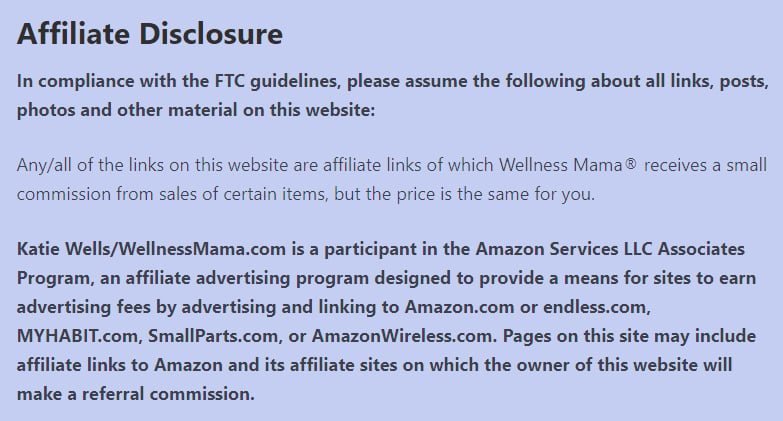
Where to Disclose
Customers need to be able to see it, and they SHOULD NOT have to search for it.
Your affiliate disclaimer should stare them in the face and be impossible to overlook.
Want to know if it's clear and conspicuous? The FTC recommends looking at it from another point of view - the POV of "a significant minority."

If "a significant minority" of your viewers wouldn't see your disclaimer, then it's not visible enough.
Here are a few places to disclose that are generally very effective:
- Top of the blog post
- Bottom of the blog post (but before the affiliate link)
- Top of your main page
- Bottom of your main page (but before the affiliate link)
- In your Tweet/Instagram/Facebook/Pinterest post
- Next to the affiliate link
- All of the above
Remember, customers encounter your content from various access points. If you're promoting links to a blog, you need to disclose on your blog because a "reasonable consumer" might not navigate from your blog to your main page.
Don't forget to make the disclosure prominent and unavoidable.
The Bottom Line
The FTC sums up how to follow the letter of the law:
"The ultimate test is not the size of the font or the location of the disclosure, although they are important considerations; the ultimate test is whether the information intended to be disclosed is actually conveyed to consumers."
Four Essential Parts of an Affiliate Disclaimer

There are four essential parts of an affiliate disclaimer:
- Tell everyone that you're getting paid
- Explain why you've chosen the specific products
- Disclose whether you receive free products
- Let everyone know if you participate in Amazon Associates
Tell Them You're Getting Paid
Your disclaimer should state that you earn a commission based on purchases or clicks.
You don't need to tell them how much you get or what percentage you're allowed. Just tell them you're getting paid.
Here's an example from Smart Passive Income, a blog about affiliate marketing:
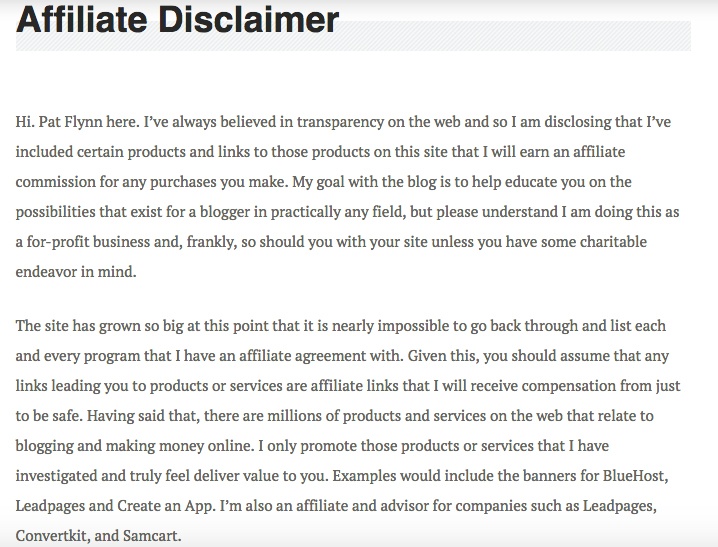
Here, the site owner lets all readers know that a commission will be earned on purchases made because they're a for-profit business and that's what businesses do.
Explain Why You've Chosen the Products
Many businesses choose what products to promote because they know what their customers will like. But some partnerships may require you to promote specific products. Use your disclaimer to let your customers know your policy on choosing products.
Look back at the disclaimer from Smart Passive Income and you'll see one of the last sentences states that the only products or services that are promoted are ones that the blogger has investigated and feels truly deliver value to the readers.
FreshPresso, a coffee review site, notes that they only choose products they fully recommend. This policy allows them to review and post products that a manufacturer is trying to push as long as the researchers at the site agree that the product is of a quality that they can recommend it:

Add a section to your disclaimer that lets customers know why you've chosen the products to boost trust and promote transparency.
Disclose Whether You've Been Given Free Products
Were you given a free product or did you buy it yourself? Let the customers know in your disclaimer so they know you didn't go out and find the product on your own. This information will likely matter to people.
MySubscriptionAddiction - a blog about subscription boxes - includes this paragraph in its affiliate disclaimer:

This disclosure makes it clear that the blogger may receive free products and services in exchange for a review, but that this fact won't influence the blogger's honesty or content.
Let Them Know You Participate in Amazon Associates
Amazon Associates doesn't just require FTC compliance. The Amazon Associates Program Operating Agreement requires that participants in the affiliate program must also note that they are involved with Amazon:

Amazon says that affiliates must:
"...clearly state the following, or any substantially similar statement previously allowed under this Agreement, on your Site or any other location where Amazon may authorize your display or other use of Program Content: "As an Amazon Associate I earn from qualifying purchases."
Here's how FreshPresso tell customers it participates in Amazon Associates:

All FreshPresso did was note their membership in the program. They also went a step further by providing a specific example of what kind of commision they might receive - but that isn't required.
Conclusion
Affiliate disclaimers are required by both the FTC and many reputable affiliate programs. Some business owners still feel strange about them. After all, you're walking a fine line between sharing your opinions on products you love and reaping the benefits of affiliate programs.
However, there's no reason to worry. Affiliate disclaimers only benefit your business because they encourage transparency and promote customer trust, which only serves to drive loyalty.
Remember, your affiliate disclaimer should be "clear and conspicuous" and it should make it immediately obvious that you'll get paid if the consumer buys something. Even if all you get is a lunch or a discount on the products, your reward has a financial value that needs to be disclosed.
After you have your affiliate disclaimer in place, update your Privacy Policy to reflect your involvement in affiliate programs and you'll be even more compliant, transparent and professional to your customers.

